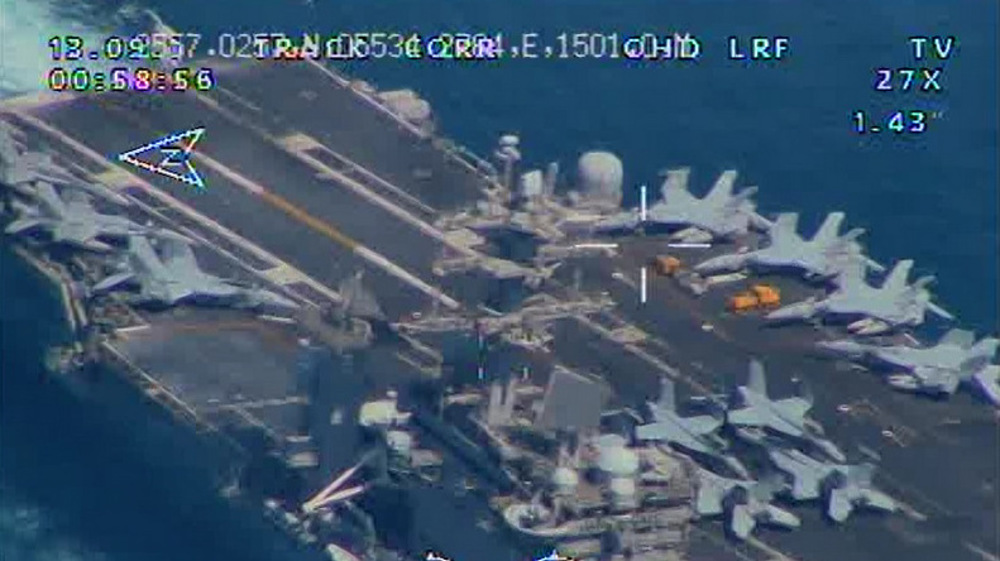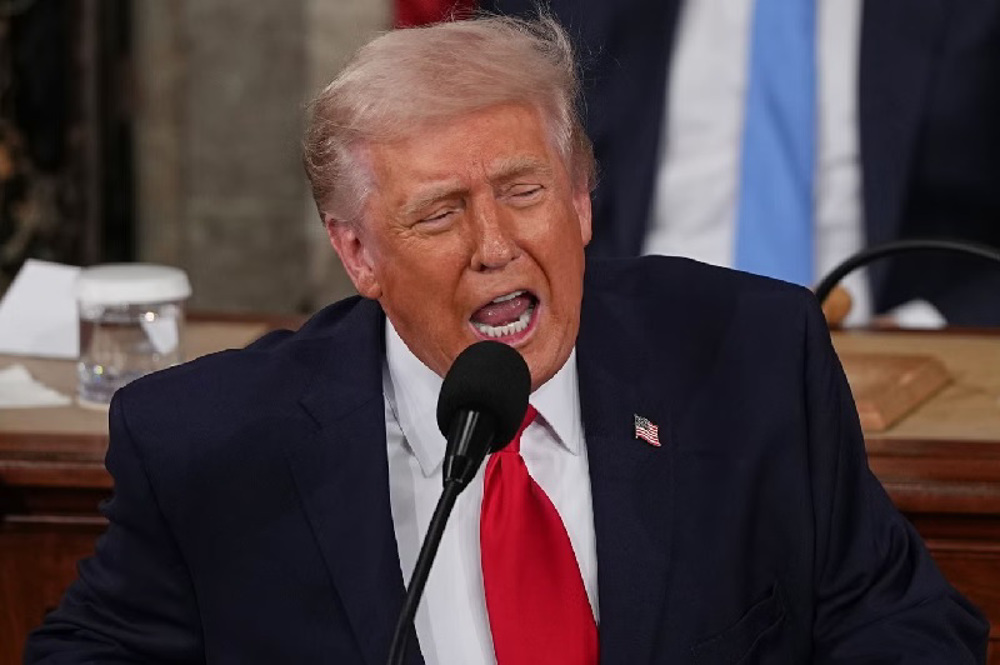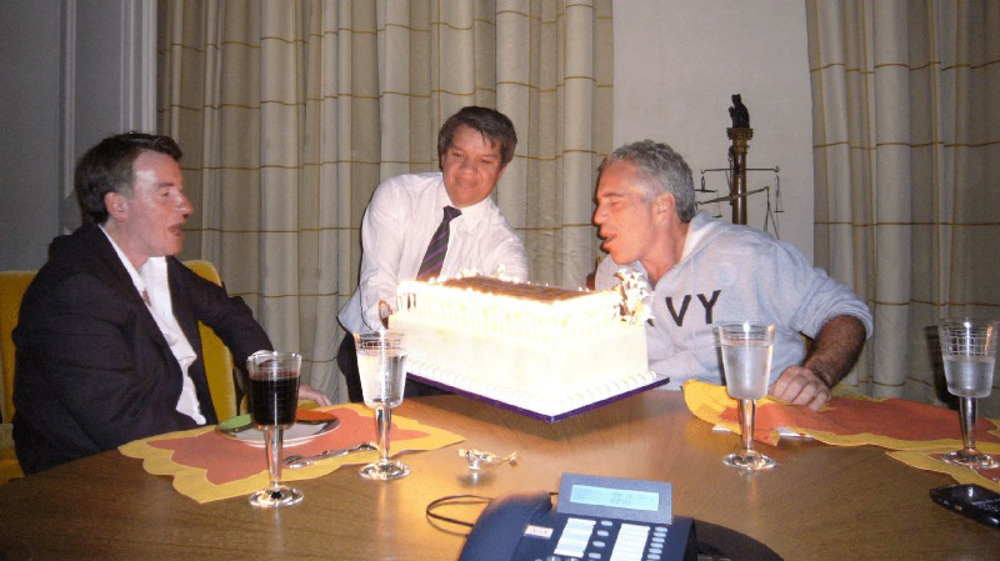US bullying with regard to JCPOA backfires, isolating the US
The terms and conditions stipulated in the JCPOA, the Joint Comprehensive Plan of Action, are crystal clear, with the 18th of October clearly set as the termination date for the arms embargo on Iran.
The USA, despite having unilaterally left the JCPOA and no longer being a party to the agreement, has been rallying its allies since April in the hope of extending the embargo and, eventually, triggering the snapback mechanism, to re-impose ALL sanctions on Iran!
That would entail retaining the arms embargo beyond October 18th in addition to the suspension of all nuclear enrichment-related and reprocessing activities. Since imports to Iran would consequently be banned; imports of anything that could contribute to those activities would cease.
Enough is enough
Friend and foe are equally fed up with the never ending US folly and have turned their backs on the US. Seeing the US isolated on the world political stage, experts and observes who had forewarned of such a state of affairs coming to pass, have been vindicated.
Not accustomed to taking NO for an answer, the US is battering on closed doors, still trying in vain to trigger the snapback mechanism against Iran. How does that look form the standpoint of International Law, and what will it mean for Security Council resolutions in future, should the US succeed?
Lost confidence in US hardly surprising
Should one take part in a covenant, having agreed to all its terms and condition, and subsequently renege on all said terms and conditions, it would hardly be surprising if the whole wide world were to lose confidence in one’s ability to keep ones word on any given matter.
Having done so (withdrawing from Iran’s nuclear deal), the US has even caused skepticism among its own allies about future cooperation. From the very beginning we did not trust the Americans. That was the case even during the talks. It provides solid proof that the US and its likes would not remain committed to their own promises.
Alborz Hosseini MP, Construction Committee
The Americans have adopted diverse sanctions against us, ranging from the sanctions adopted at the UN Security Council to the sanctions slapped by the US Congress, US administration and finally the European Union. No evidence has so far emerged of Iran’s violation of NPT terms.
Mohammad Aqh Safari MP, Domestic Affairs Committee
What was the purpose of the JCPOA?
The 2015 JCPOA Joint Comprehensive Plan of Action or Iran Nuclear Deal was to curb Iran’s nuclear activity. The US pulled out of the deal in 2018 and now it wants to boycott Iran’s defences altogether, in drawing on the very deal it’s no longer party to! Iran’s simplest response would be to pull out too and freely embark on its nuclear programme which is peaceful, but the West doesn’t believe it is. Iran’s toughest response would be to pull out of the NPT itself. That’s the nuclear non-proliferation treaty, the purpose of which is to promote cooperation in the peaceful uses of nuclear energy.
Was it wise to push Iran out of its commitments?
The US decided to follow this maximum pressure campaign to the level that no one in the world accepts it; the US wanted to overthrow the government in Iran but failed obviously, they wanted to get more concessions out of Iran, but they have not been successful and they actually lost concessions. So the policy of maximum pressure campaign has failed.
Foad Izadi, Professor of International Studies, Tehran University
Can the JCPOA be saved despite US bullying?
For the past two and a half years the Europeans, despite the will to save the accord, have failed miserably in doing so.
Their companies may be working within the framework of national interests, but when it comes to profits and losses they may no longer be on the same wavelength with their governments. That is exactly when European firms did with Iran over the past 2 ½ years.
Morteza Makki, EuroAsia Expert
The Dominican Republic, which Trump famously called a s…..hole country, most surprisingly stood with the US in voting against Iran.
The E3 or Western European powers party to the nuclear deal actually called for unity in standing up to US rashness. Their statement read: “We call on all U.N.S.C. members to refrain from any action that would only deepen divisions in the Security Council or that would have serious adverse consequences on its work.”
I personally think that the Europeans are still willing to save the JCPOA. The reason is that the Europeans see the JCPOA as a major political and security breakthrough for themselves. After long years of intensive talks, an agreement was reached on the basis of non-proliferation with a nation they often accused of developing a suspicious nuclear program. Any collapse of such security-inspired agreement would have security consequences for the European governments. Over the past two decades when the Middle East has experiences serious crisis, unrest and insecurity the Europeans have genuinely felt the consequences of security crisis and insecurity in this region.
Morteza Makki, EuroAsia Expert
There are neither legal grounds nor common sense involved in the US demand, said Russia and China, the eastern powers party to the deal. To DO something about it, Russia actually requested a meeting to discuss the US decision to trigger a snapback of sanctions on Iran. But seeing as the US objected to the meeting, Russia withdrew its request, saying it was "unbecoming behavior" for the US.
The US does not have a legal leg to stand on
Not only the US doesn’t have any international legal base, it is actually violating international law every day. The US is a member of UNSC, and world expects from it as a permanent member to follow the UN’s resolutions; but we saw, in the recent years mainly, it actually punishes countries which wanted to follow UN resolutions. So the US is not only not following international law, it is a rogue state violating all kinds of international law whether it is UN resolutions or not.
Foad Izadi, Professor of International Studies, Tehran University
The US has the gall to say that, although it has unilaterally exited the accord, since it is an original signatory to the deal and a member of the UNSC, it can implement the snap back mechanism.
Dr. Izadi further pointed out that “It is true that the US was a participant of JCPOA when the agreement was announced in 2015 but in 2018, two years ago the US officially ended its participation. If you go to the Whitehouse website even today, the title of that document is US ending participating, ceasing it. If you refer to its text, it has used the word end; you cannot go back in history and claim to be part of something you have ended your participation in it. That is why no one accepted the US logic because there was no logic.”
The United States lost the chance to use the tools of the UN Security Council. It then used illegal tactics and verbal games to announce that Iran should be subject to new sanctions. The way the US has been strutting around claiming it will make Iran’s defence programme disappear whatever the cost, you would think it has some tools to enable it to unilaterally impose international sanctions.
A bully without an ally
The US is used to getting its own way through bullying with the help of others to enforce its will, however, since no country is going to join Washington in this instance, the US is going to be alone, which, according to Dr. Izadi, means it is going to be much more difficult to pressure Iran in comparison to when other countries joined in.
The US, as the biggest economic and military power in the world, has the highest military spending in the world. Other nations are far behind the US in terms of military spending. Therefore, the US wields heavy clout with global markets. Ever since Trump quit the JCPOA, owing to the US’s influence on financial markets, the Americans have managed to push European firms to choose between Iran and the US. As the US’s secondary sanctions have pushed European firms out of Iran, the Americans think they can increase pressure by offering their arbitrary interpretation of Resolution 2231 of the UN Security Council.
As the nature of diplomacy becomes more distorted, rhetoric is becoming brash. The Pretence of knowing what’s best for us is a thing of the past. What’s now come to the fore is the USA’s America First Policy. An Iran with a successful arms industry would be competition for America on international markets. Apart from the fact that Iran could be a hindrance to American adventurism.
Security Council Resolution 2231 set up a process for the Iran arms embargo to end within five years.
Iran’s military standing
The lifting of the embargo will enable Tehran to export “weapons and technical services.” And countries cut off from major arms markets would very likely be happy to buy its reasonably-priced, efficient weapon systems. Popular candidates would include: surface-to-surface ballistic missiles, short and medium-range ballistic missiles.
The Iranian military is mighty as exemplified in recent years by shooting down very sophisticated US drones, utilizing domestic technology which is exclusive to Iran and a handful of other countries.
The reason US has not attacked Iran so far is because of that military capability. Because the cost of attacking Iran is going to be severe and Iran is not Afghanistan or Iraq. Iran is able to create pain.
Foad Izadi, Professor of International Studies, Tehran University
Arms trafficker, supreme
The USA is known to profit from the heavy and advanced weapons market, being a major manufacturer, but it also earns a tidy sum from the lucrative light weaponry sales and brokerage sectors.
Light weaponry produced in Eastern Europe has its uses to the US led coalition, apparently. The coalition illicitly passes those weapons on to terror groups such as ISIS or Daesh and what was Al Nusra in Syria. Israel for its part operates out of the occupied Golan Heights, to provide weapons, ammunition and logistical support to Al Qaeda rebels operating in Southern Syria.
Iran has long held that the US and its allies are, in fact, the ones who should be subject to an arms embargo. The Pentagon buys weapons from third countries to pass on to rebel and terror groups in West Asia and Africa, via its proxies and allies in the region.
Abu Al Ezz is a unit commander of the terror group Jabhat al-Nusra or the Nusra Front. He himself confirmed in a September 2016 interview that the US was sending weapons to Al Nusrah through “third countries”. And yet he complained: “Yes, the US supports the opposition [in Syria], but not directly. They support the countries that support us. But we are not yet satisfied with this support.”
One man’s terrorist is another man’s customer
Saudi Arabia, Israel, and Qatar are just a few of the American allies passing on US-brokered weapons.
When Jabhat Al-Nusra was “besieged “ officers from Qatar, Saudi Arabia, Israel and America were there to reportedly advise in the use of satellites, rockets, reconnaissance and thermal security cameras.
Saudi Arabia and the UAE are sending US Made weapons to Al Qaeda affiliated fighters, Salafi militias, and other factions waging war in Yemen, in direct contravention of their agreements with Washington.
This leaves the US complicit in tens of thousands of civilian deaths in the Yemen. One can but conclude that either the US administration has known all along what its allies are up to, or the Pentagon has lost control of them, which is just as dangerous.
The US may have lost control of Arab allies, lost western allies by overdoing its political stunts on Iran, and in going down the same path, lost its authority. By imposing sanctions on Iran, it is imposing sanctions on those needing to deal with Iran, be they allies or not.
The US is even talking of rejuvenating the 1929 resolution to complete its desired snapback process. Fellow-decision makers deem such action illegal. In other words it is pushing countries into ignoring its demands and authority.
Is resolution 1929 cause for concern?
The UNSC resolution 1929 obligates all countries to inspect suspect shipments en route to Iran, and to destroy any banned cargo. Even when such UN resolutions against Iran were valid, no country dared implement their provisions against Iranian ships and cargo. Now there’s not even a legal basis for them to take such a risk. Such resolutions are rendered invalid by Resolution 2231, which the JCPOA rests on.
The US may end up stopping and searching commercial ships to and from Iran. But in having to survive sanctions, Iran has taken great strides and is no longer a sitting duck.
Snapback Mechanism
The snapback mechanism would restore the sanctions that had been imposed on Iran through six UN Security Council resolutions from 2006 to 2011, covering a wide range of fields including political and economic sanctions as well as cooperation between Iran and other nations. The UN sanctions would bar Iran from any financial and commercial transactions with any entity in the world.
What are Iran’s options?
One passive response to snapping back sanctions would be for Iran to stop implementing the Additional Protocol, increasing the uranium enrichment level, and ending cooperation with the IAEA, which will make the West regret the triggering of the snapback.
It is most unfortunate that world bodies such as the UN, the International Atomic Energy Agency and the Security Council, have all turned into bodies tasked with implementing US policies. But the world is asking why they failed to produce any evidence to prove their claims that Iran was developing nuclear arms.
The Americans are pursuing their attempts at isolating Iran and spreading Iranophobia for the purpose of selling their arms. But this policy is so threadbare, it is almost see-through now.
Military self-sufficiency
As Dr Izadi points out, most importantly, around 99% of our capabilities are domestically made; So Iran is independent unlike Saudi Arabia or some other Persian gulf states which have to import everything including even technicians to run the things they have bought by petrodollars.
While mentioning the missile programme must not forget two new missiles were recently uncovered named after Qasem Soleimani and Abu alMahdi; the Iranian and Iraqi commanders assassinated by the US on the third of January outside Baghdad airport.
In the same spirit Iran has reverse-engineered and manufactured the BGM-71’ Toufan’ anti-tank guided missile. Sina Azodi, a non-resident fellow at the Atlantic Council anticipates what would be in demand. This would include: light infantry weapons systems and artillery systems, such as the Ra’ad 155 mm self-propelled howitzer. He says: “I do, … think that given the Iranians’ expertise in anti-tank and anti-ship missiles, those are on the top of the list.”
The US has already exerted pressure on North Korea and Iran. It is now ratcheting up pressure on China. It is even pressuring Russia, not to mention tiny states like some European nations. Therefore, they have yet to reach an Iran-style understanding to choose a path for themselves. We are now waiting from them to retrieve their intellectual independence and stand against US allies. That would serve all nations in the world.
Abbas Jahangir Zadeh MP, Agriculture Commission
Sanctions have made Iranians suffer, but ultimately led to considerable advancement. Iran takes ongoing US sanctions as superficial efforts, in vain at best, and as pre-election stunts at best. After all the US presidential elections are close by in November.
On a final note, Iran has undergone great advances in drone technology, which we would gladly sell to allies. The Russians have already shown an interest. Over the years Iran has been producing increasingly more advanced drones. Conventional artillery weapons and small arms have already enjoyed marketability in past.
US-allied fuel tanker attacked by Iran still burning in Strait of Hormuz: IRGC
Attacks on hospitals, schools ‘strike at life itself’: Pezeshkian
Iran’s attacks on US bases ‘legitimate’ response to source of aggression: Araghchi
IRGC targets US intelligence centers, military depots in 11th wave of attacks
US-Israeli attacks damage 5 hospitals, medical centers in Iran: MP
Unlike US, Iran prepared for a long war: Security chief
Missile sirens will never stop in Israeli-occupied territories, Iran warns
Leader’s martyrdom will drive Iran to greater dignity and victory: Senior cleric
















 This makes it easy to access the Press TV website
This makes it easy to access the Press TV website